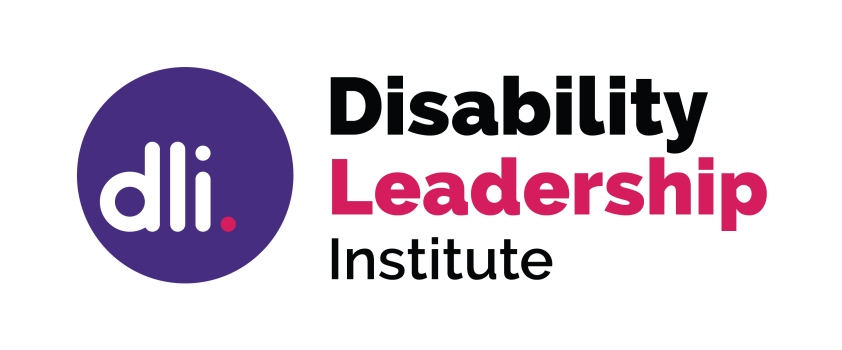By Christina Ryan – DLI CEO
One of the perennial topics of conversation in the disability community is whether someone should openly identify as disabled in their workplace. It’s a thorny issue and for good reason.
So, many people with disabilities have made the decision to openly identify and then experienced serious consequences, even losing their jobs over it. Of course, you can’t be sacked specifically because of your disability, there is legislation in many countries to prevent this, but you can be made to feel very very unwelcome and decide to leave. Many people have stories to share about themselves or about colleagues in the disability community.
Employment rates are low for disabled people, retention rates aren’t much better. What can we do to avoid the constant recruitment trap? Losing staff and constantly needing to recruit is hardly the solution, there must be other ways to build disability workforce so that we are also building disability leadership.
Recently I’ve been talking with disability leaders about being role models in their workplaces. Given that most people with disabilities are not visibly disabled this is a big ask. Yet it’s crucial to have senior role models so that culture changes and so that new recruits can see what is possible for them in an organisation. This is the “be what you can see” strategy. This strategy has worked increasingly well for women and for Indigenous peoples over the last couple of decades. We need to start using it for employees with disabilities as well.
Unfortunately, this places enormous pressure on disability leaders when they have already pushed very hard to get where they are, and just want to get on with being another employee, not a crusader.
Why must individual disabled people put their careers and financial security on the line?
Being part of a network, having peers at your level, and being part of a broader professional disability community (like the Disability Leadership Institute) are all contributions to how you can be supported if you decide to openly identify. However, none of these will prevent discrimination or ableist responses. Networks may provide assistance in knowing you are not alone and help with sharing solutions, but they don’t change the attitudes of others.
Of course, many people do not have the option of choosing to disclose as we are readily identifiable. In some ways this makes it easier as we don’t live with the anxiety of being exposed or choosing to make the decision to be open, but in other ways it makes it much harder as the prejudice starts before we even get in the room. We are left out of invitations or excluded from new projects because it is assumed we aren’t the best and brightest. All without someone knowing anything about us, except that we are disabled.
There is no easy answer, if there was we wouldn’t still be having the conversation.
People with disabilities are all different. As the single largest minority on the planet today, we are not generic, we are incredibly diverse. Our community is highly intersectional. Our one common thread is our disability and the prejudice and exclusion that it brings. Unfortunately, many of the responses to disability in the workplace are generic, rather than built round the individual, and this compounds the barriers to achieving career success and leadership positions.
We can’t shift the culture until we have critical mass, we won’t achieve critical mass while the culture remains as it is.
We need disabled people in far greater numbers in the public domain to achieve the culture shift that is desperately needed. However, this won’t happen until we are in a wide variety of positions and fields in strong numbers and openly recognised for our contribution to local, national and global leadership. People with disabilities are already in many of these places but are not openly identifying as disabled because the risks are so high, and why should they?
Interested in news from the Disability Leadership Institute? Sign up for our bulletins.

Great read Christina!
Kind regards,
Sarah McCarthy
Workplace Education and Relationship Manager
Direct: +612 9206 2191 | Switch: +612 9206 2000 | Mobile: +61 428 811 017
Address: 414 Elizabeth St Surry Hills NSW 2010
Website: http://www.prideinclusionprograms.com.au
Twitter: twitter.com/pridediversity | Facebook: facebook.com/prideindiversity
LinkedIn: https://au.linkedin.com/in/sarahmcc
Personal pronouns: she/her
[cid:image001.gif@01D3BC43.441DF100]
ACON acknowledges and pays respect to the traditional owners and custodians of all the lands on which we work.
This email and any files transmitted with it are confidential and intended solely for the use of the individual or entity to which it is addressed. If you are not the named addressee you should not disseminate, distribute or copy this email. Please notify the sender immediately by email if you have received this email by mistake and delete this email from your system. Please note any views or opinions expressed in this email are solely those of the author and do not necessarily represent those of ACON. Email transmission cannot be guaranteed to be secure or error-free as information could be intercepted, corrupted, lost, destroyed, arrive late or incomplete, or contain viruses. The sender therefore does not accept liability for any errors or omissions in the contents of this message which arising as a result of email transmission.
LikeLike
Reblogged this on the little lioness.
LikeLike